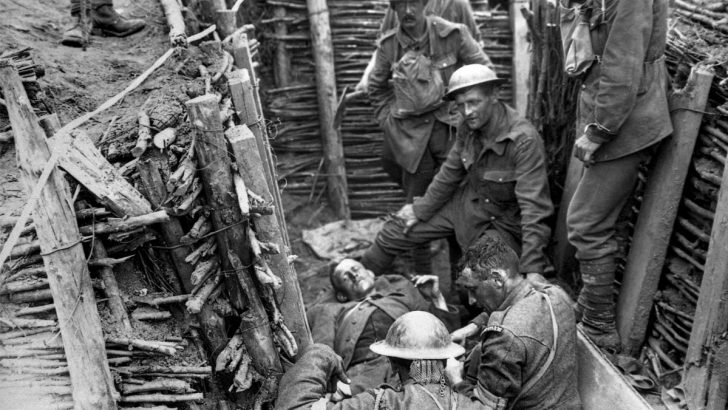A feature of the temperance movement from the beginning was inclusiveness, writes Finola Kennedy
“Padre, is that you?…Is there a God?” Reassurance from the chaplain to the dying young officer prompted the reply, “You must be right, but it’s hard isn’t it, to understand?”
It must have been hard too for the 32 Irish Jesuit chaplains in World War I as well as the hundreds of men who had been educated with the Jesuits and fought in the war. Of the 604 men who had been educated by the Jesuits at Clongowes and fought in the war, 95 were killed.
The number of Clongownians who served exceeded the number from Methody in Belfast with 428 who served and 80 killed. Like Tom Kettle, many from Clongowes believed they were fighting for Home Rule.
The Titanic photographer and Jesuit Fr Frank Browne, who was awarded the Military Cross, was chaplain to the Irish Guards. He was wounded and sent home for a period to recuperate. On his return he was in the same Irish division as another Jesuit, Willie Doyle, until Doyle’s death at Passchendaele Ridge in 1917. Before Doyle was buried in an unmarked spot on the battlefield, some soldiers cut his Pioneer pin, emblem of the Pioneer Total Abstinence Association, and some buttons from his uniform and gave them to Browne. Both men were Pioneers. The association had been founded 20 years earlier by another Jesuit, James Cullen.
Concern
Fr Cullen first became concerned with men spending their money on drink when he was a diocesan curate in Enniscorthy in the 1870s. In the days before railways there were a large number of boats carrying goods between Enniscorthy and Wexford. The boat owners were known as ‘cotmen’, probably after the old Irish word for wood – ‘coite’.
The men worked hard, made good money and spent much of it on drink. Gradually Cullen came around to the idea of total abstinence and started a number of abstinence societies among different groups. Beyond encouraging abstinence, he also assembled a group of local businessmen to contribute to the improvement of housing for the ‘cotmen’.
In 1883 Cullen, also educated at Clongowes, took vows as a Jesuit, having been received into the order two years earlier. He moved to Belvedere and then to Gardiner Street where he required and received the approval of his provincial superior, Fr John Conmee, before starting the Pioneers.
Conmee features in both Portrait of the Artist and Ulysses and was responsible for Joyce’s scholarship to Belvedere. The founding of the Pioneer Total Abstinence Association dates to a meeting held by Cullen and four women, Mary Bury, Anne Egan, Lizzie Power and Frances Sullivan in Gardiner Street on 28 December 1898 – 120 years ago.
Frances Sullivan was the American wife of A.M. Sullivan, editor of The Nation which urged a cultural nationalism based on Catholic and Gaelic values. At first, Cullen thought to confine the association to women because he said: “Women have been the world’s greatest social reformers.” Men were soon admitted.
A feature of the Pioneer organisation is inclusiveness. Pioneer members have numbered the Dublin labourer Matt Talbot and the Dublin lawyer and son of the Lord Chancellor John Sullivan. Some survivors of World War I who had unsurprisingly sought refuge in alcohol from the horror of war became Pioneers, as did some of those associated with the Easter Rising.
In 1968, the year of the platinum jubilee of the association, an enthusiastic tribute came from a controversial politician, Deputy Oliver J. Flanagan. Mr Flanagan, who was the father of the current Minister for Justice, Charles Flanagan, and was himself Minister for Defence, stated as his personal opinion “that the hallmark of every Irish man and woman should be the Pioneer emblem and the fáinne, because in the grand tradition of our faith and fatherland, temperance, good citizenship, love for our country, its language and culture should and must be our aim’’.
Cullen might have approved as another achievement of his was the founding of the St Francis Xavier Hall in Gardiner Street where he urged clergy to organise drama societies, Irish language classes, debates and other activities to enrich the lives of the people.
James Cullen SJ died on December 6, 1921, the day the treaty was signed.
Finola Kennedy is a writer.


